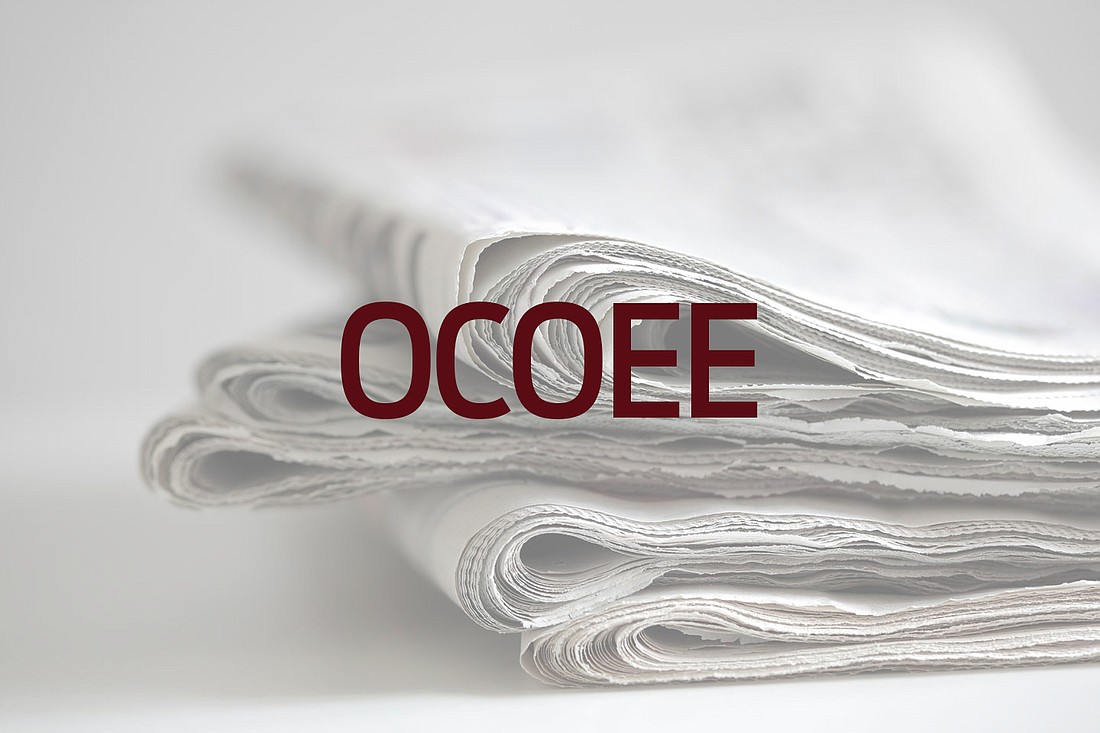- April 24, 2024
-
-
Loading

Loading

Changes could be coming to how the city of Ocoee deals with solid waste and recycling.
City leaders during the Aug. 20 commission meeting will be considering changes regarding the residential solid waste program . Changes being considered are related to recycling, service fees and service frequency in the city.
Public Works Director Steve Krug discussed the rising costs associated with the residential solid waste program during a budget workshop meeting Thursday, Aug. 8. He said disposal and operating costs for the program have increased by more than $500,000 since the city last increased the rates for the program in 2008.
“Back in ’97 to ’05, we were charging $16 a month for garbage and recycling,” Krug said. “From 2005 to 2008, we bumped it up to $19 a month. And in 2008, we’ve been holding up until now a $21-a-month fee, and it’s been covering things until recently.”
Krug said the city hasn’t raised its residential solid waste rates in years because the city has been able to operate the program under the current rate. But with the costs associated with the program increasing, the rate would have to increase as well. Some of the issues driving up costs of the program include increases in yard waste fees, the county garbage tipping fee and cost of labor, as well as truck maintenance.
“Our $21-a-month fee was based on replacing the trucks every five years, but running them five days a week with the current recycling program, we’re wearing our trucks out in four years,” Krug said. “That adds almost another $100,000 to our capital costs, along with $35,000 for repairs.”
In terms of how the city should move forward with its solid waste services, Krug recommended doing two garbage pick-ups per week, utilizing a central drop-off location for recycling, returning to a four-day weekly yard and bulk waste pick-up and increasing the monthly fee for services to $23.72, which is a 13% increase of the current rate.
One of the biggest drivers of the increased costs of the city’s residential solid waste program relates to recycling. Krug said there are four options to be considered with how the city can move forward with the recycling program, including getting rid of it completely.
“We’re looking at continuing the way we do it, which is most of the contaminated recycling (going) to the landfill because it isn’t being accepted at the recycling center,” Krug said. “We could go back to a bin collection system again where people have to separate (recyclables) and put them in bins at the curb, and we’re also looking at setting up a recycling drop-off center at the Public Works department, and the fourth option is to totally eliminate recycling until the market returns.”
Aside from the costs associated with maintaining trucks that picked up the recycling and paying individuals that drove the trucks, recycling was something that cost the city nothing at one point. That changed in 2017, when China — who at one point took in up to 45% of the world’s recyclables for processing — imposed its National Sword Policy to combat climate change. That policy took effect in 2018, and places strict new guidelines on imported recyclables.
“The main issue is that most of the recycling was going overseas, mostly China,” Krug said.
“(Those recyclables) became so contaminated with so much garbage (that) China realized they weren’t getting recyclables, but they were getting a lot of garbage. So, they put the mandate that they will only accept a half a percent contamination, which means they want totally clean loads. We’re experiencing anywhere upwards of 50% contamination in a lot of our loads, so there’s just no market for it.”
Contamination in recycling can be as simple as a few plastic bags — which is the most common contaminant — a greasy pizza box or other container with food residue. Although plastic bags are recyclable, they are supposed to be recycled separate from other recyclables, as the bags can cause recycling equipment to jam.
“It only takes a few plastic bags and the recycling transfer station will reject it,” Krug said.
The trucks the city uses for recycling are equipped with cameras that show the truck operators what people put into their recycling containers. If the operators see contaminants in a load of recycling, then that load goes to the landfill, Krug said.
“We don’t intentionally mix garbage and recycling together in collections, unless we miss a week or missed someone’s house and they just say, ‘Well just empty it anyway so we can go ahead and reload the recycle bin,’” Krug said. “Our (recycling) bins are 96-gallon carts, and it’s hard to see (inside). You can’t even see the bottom if you were to open the top up. … There’s a camera that focuses down to the hopper of the trucks. When they lift the arm up and it dumps in, they can see if there’s been any contamination or things like that.”
In addition to addressing recycling, Krug also discussed service frequency for residential solid waste and/or recycling services and adjusting the fee charged to residents for solid waste services. No matter which of the four options the city chooses for the recycling program, increased landfill and labor costs remain.
“We are talking to some private haulers to see what kind of numbers they could provide to do the same service,” Krug said. “We have a pretty lean setup as far as the service we’re offering. … Some of the larger vendors have a much larger base to spread equipment costs and labor costs.”
Any residents with questions or concerns may contact Ocoee City Hall at (407) 905-3100.